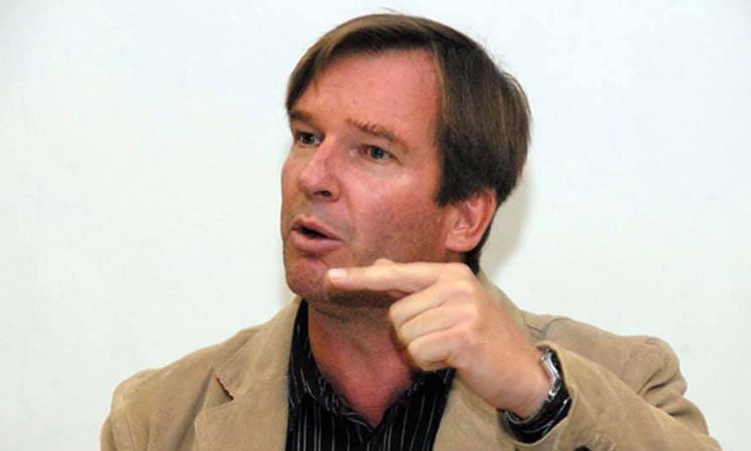The 33RD ANNIVERSARY of our independence left a bitter taste among many Namibians.
The heavy-handed approach of the Namibian police in preventing protests against youth unemployment was particularly disconcerting.
Demonstrations do not have to be “approved” and it is an irony of history that the Namibian police cited the Public Gatherings Act of 1989.
This law, passed in the dying days of the colonial regime, aimed to restrict Swapo and its allies in the run-up to our first democratic elections in November 1989.
Unemployment is not a new phenomenon but has worsened over the years.
In the 1990s, a tertiary qualification virtually guaranteed employment, but today unemployment affects even those who complete degrees and diplomas.
Successive labour force surveys detail this trend, and no politician can claim to be unaware of the unemployment crisis, which mostly affects the youth and women.
Namibia’s Vision 2030 envisaged an unemployment rate of 5% by 2030 in stark contrast to the current rate of around 50%.
The last official data – from 2018 – did not reflect job losses during the Covid pandemic.
The government has made attempts to address the crisis such as the Targeted Intervention Programme for Employment and Economic Growth (Tipeeg) in 2011.
Its aim was to create 104 000 direct and indirect jobs between 2011 and 2014.
The budget allocation was N$14,7 billion and the priority sectors were agriculture, transport, housing, and sanitation, tourism and public works.
In the end, only about 15 000 permanent jobs were created, far short of what was needed.
A NEW PLAN
The National Employment Policy (NEP) of 2013 was thus expected to create a much larger number of additional jobs.
The NEP was not limited to conventional labour market policies. It presented an integrated policy framework which covered macroeconomic and sectoral aspects, as well as institutional aspects in order to create 90 000 additional jobs.
It proposed well targeted public investments as the driving force of economic growth and job creation.
Public infrastructure assets were meant to be upgraded and the priority areas were agriculture (crops, livestock and agriculture-based industries), electricity (moving towards self-sufficiency and renewable energy sources), housing and water (including sanitation), mineral beneficiation, tourism infrastructure as well as transport and logistics.
Increased public expenditure was expected to lead to increased private investments and production in the short and medium term.
Poverty reduction and income inequality were meant to be at the centre of Namibia’s economic growth.
The NEP aimed to bring about development by utilising appropriate technologies for producing goods and services consumed by Namibians.
It envisaged locating production and expanding markets in rural areas to create new jobs countrywide.
CORE FAILURES
Despite a detailed implementation plan, the policy failed to make the envisaged difference. An independent evaluation in 2019 found several reasons for the failure such as a “silo-mentality” in government operations.
This undermined strategic interventions and the understanding of employment creation as a cross-cutting theme.
The government lacked a central agency to guide and evaluate the policy’s implementation.
The evaluation also found that state agencies stuck narrowly to their mandates, resulting in poor prioritisation and inefficient resource use.
Cross-ministerial meetings were often little more than talk shows which produced no tangible results.
Overall, government agencies were unable to reflect on the policy and to improve its effectiveness during implementation.
ANY HOPE?
Such failures haunt Namibia’s unemployed. The president’s recent state of the nation address failed to recognise the magnitude of the problem.
Creating 3 000 jobs in the police and army does little for the 400 000 unemployed Namibians.
Unless there are deliberate interventions to create a large number of decent jobs and to change economic structures away from extractivism (mining) towards beneficiation and local production, thousands of unemployed Namibians will continue to queue for a handful of jobs.
We need bold interventions now, including the utilisation of natural resources for public benefit – away from elite capture that only benefits a selected few.
These are the issues we need to confront.
Banning protest marches and arresting the youth is draconian and counter-productive and will not solve the unemployment crisis.
- Herbert Jauch is the chairperson of the Economic and Social Justice Trust.
Stay informed with The Namibian – your source for credible journalism. Get in-depth reporting and opinions for
only N$85 a month. Invest in journalism, invest in democracy –
Subscribe Now!










